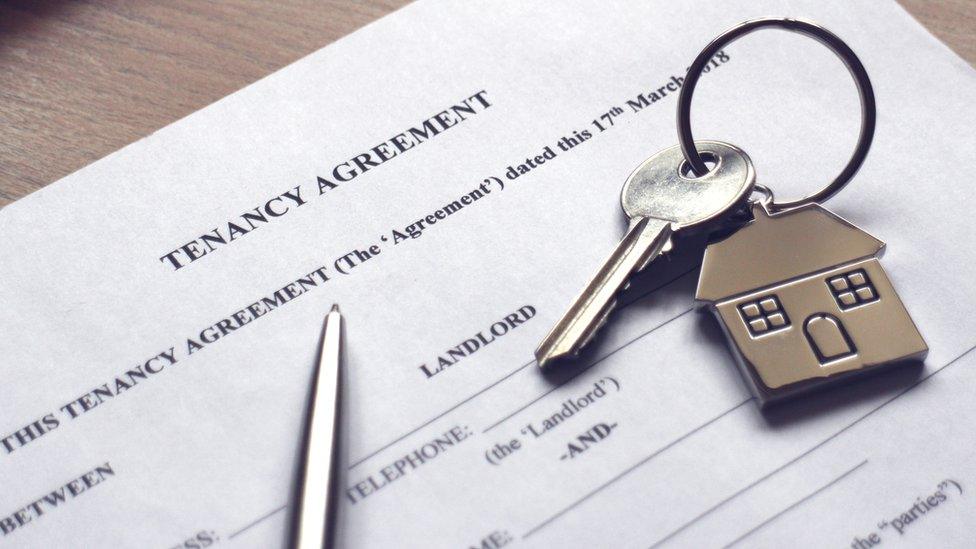Housing: NI renters face lower deposits under new law
- Published

The Private Tenancies Act aims to strengthen the rights of private tenants
Tenants in Northern Ireland can no longer be asked to pay a deposit of more than one month's rent, according to new legislation.
It is one of six new protections for renters that came into effect under the Private Tenancies Act, external from 1 April.
For tenancies beginning after this date, landlords can only recover a deposit equivalent of up to one month.
The legislation will not apply to those who agreed to pay a higher deposit before 1 April.
For rents paid in periods other than whole months, the deposit should amount to one day's let multiplied by 30.
Landlords face a fixed penalty notice of £500 or a fine up to £2,500 if they do not comply.
What is included in the legislation?
The Private Tenancies Act aims to strengthen the rights of private tenants.
Landlords are now required to give tenants free information within 28 days of a tenancy beginning.
This includes their contact details, rent and rates, and the length of the tenancy.
A free notice of variation must also be given to tenants if anything about their tenancy changes within 28 days.
If this information is not given within the timeframe, the landlord is guilty of an offence and if convicted, can face a £500 fine by the local council or up to £2500 in court.

Landlords could be fined up to £2,500 if they are convicted of an offence in court
There have also been changes to how long a landlord can take to protect deposits within an accredited scheme.
The deposit must be submitted to a tenancy deposit scheme by a landlord or agent within 28 days of receiving it. This is an increase from 14 days.
Similarly, landlords or letting agents can now take up to 35 days to give written information about the tenancy.
Details of the protected deposit amount, name and contact details of the scheme operating the deposit and the reasons why a deposit may be held at the end of a tenancy must be given to tenants.
Under the new law, failing to protect a deposit is a continuing offence with landlords facing a fine up to three times the amount of the deposit.
Written receipts must also be given to tenants who pay their rent, or any other payments to their landlords, in cash under the legislation.
Related topics
- Published7 March 2022
